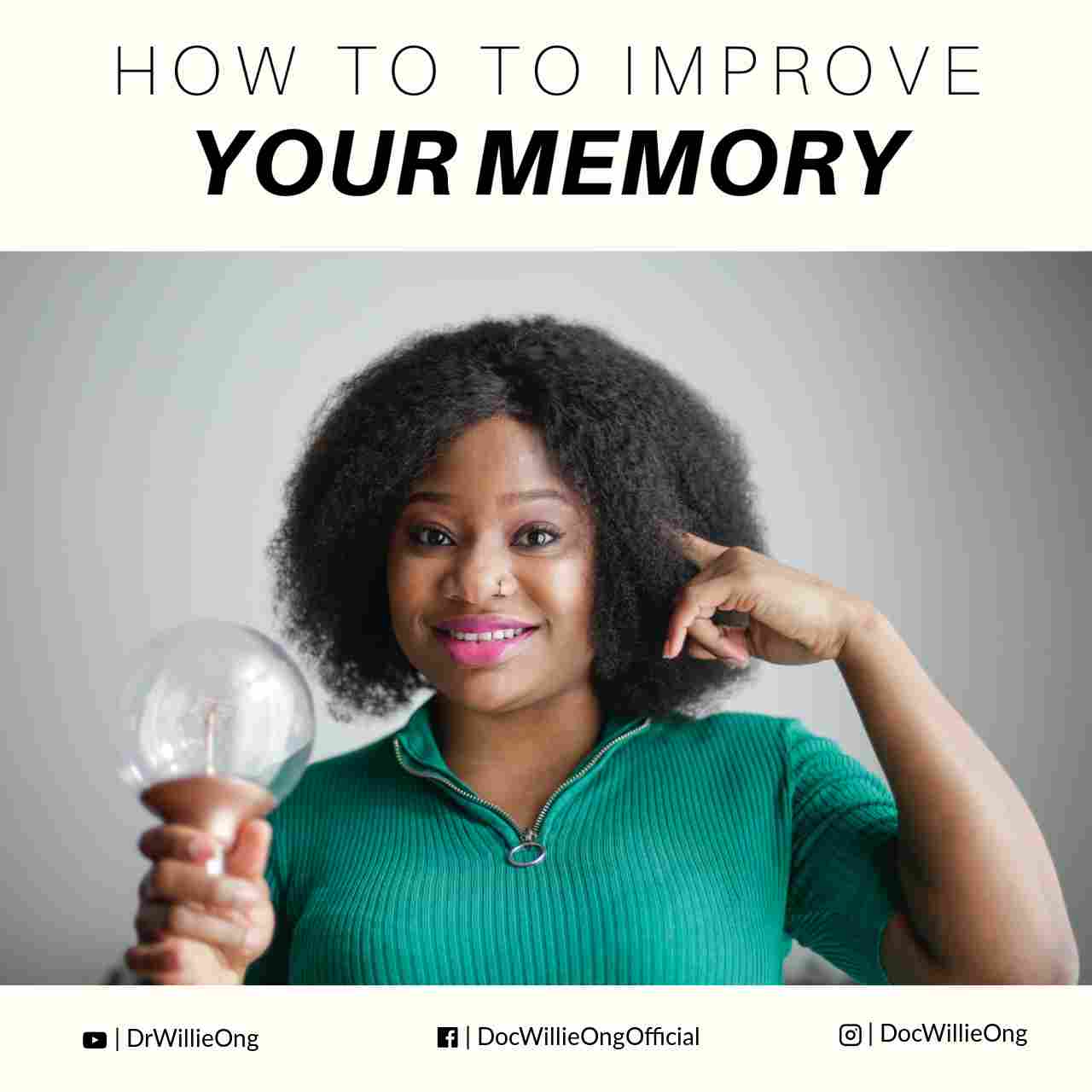By Willie T. Ong, MD (Internist-Cardiologist)
Q. I am an 18 year old college student taking up nursing. I want to know how I can study better and pass the exams. Are there medicines I can take? (Nerlyn)
A. Hi Nerlyn, what you need are memory tips and not medicines. There are dozens of books explaining various techniques and aids to improve one’s memory. There are even paid courses for memory enhancement. But the strategies are basically the same. Here are the ten best memory secrets, distilled from research and experience. They’re applicable for health care students, high school students and everyone.
List it down.
Our brain remembers things that are listed. For some reason, we remember better in 3’s, 5’s, and 10’s. What are the top three causes of kidney failure? One, diabetes; two, heart failure; three, infections. Prioritize them. List it down. This orderly approach will act like a peg in your memory.
Develop good mnemonics.
Adopt other people’s mnemonics or make your own code names. The latter takes some time but the rewards are greater. It’ll stick in your mind more. In medicine, for examples, the 4D’s in the treatment of heart failure are diet, diuretics, digitalis and vaso-dilators. To remember that LDL refers to bad cholesterol, think of “lechon de leche.”
Mark your books.
Highlight your books. Books are meant to be marked and personalized. The correct technique is to write short page summaries at the top of the page, and brief notes of the paragraphs on the sides of the page. It’s like a personal quick index, just by flipping your book. For important page numbers, place a stick-on, or fold it a little on the upper outer corner. Remember “x” marks the spot. No mark, no memory.
Use index cards.
Try writing concise summaries of important concepts in 4 by 6 index cards. Later, file them in an index box. Once you’ve got a pile, you can grab them anytime, anywhere for quick review. These solid, nuggets of wisdom are handy as memory-joggers. Diseases, symptoms, drawings and mnemonics all go into these cards.
Visualize and draw it.
A picture or illustration is worth a thousand words. Use your imagination. Stick figures are fine. For example, you can make diagrams for mnemonics and secret codes you made up. Write and file them in your index cards.
Put emotion into it.
Can you forget the name and face of your crush? Never. Why? Because you’ve invested a lot of emotion into it. Your brain’s amygdala is working overtime with lots of cross-circuitry in your neurons. It takes no effort to remember.
This strategy can also be used in studying. Remember the poor patient dying of pneumonia. What’s her name? With her face in your mind’s eye, start studying everything about pneumonia. I assure you, you’ll remember every microbe, every symptom and every treatment possible to save her.
Another technique is to discuss the topic with your teacher or your friend. Debate over it. Associate it. Feel passionately about it. Whatever you do, put your emotions at work and boost your memory.
Review again and again.
Research shows that once we’ve learned something, we tend to forget it in a week or two. Hence, you need to relearn the same thing again to remember it. You need at least two “imprints” on the brain to make it stick. The lesson here is that you have to study again and again. That’s why our battle plan is to have at least two runs on each subject for your exams.
Decide to remember.
Train your mind. There’s nothing like using your willpower and again your emotions to make yourself remember. Say it out loud, promise to the high heavens that you will remember. Be positive. Make yourself believe that you will remember.
Use your subconscious mind.
Research shows that studying before sleeping is effective in imprinting what you’ve learned in your brain. It’s even better if you dream about it. And though you thought your mind was not absorbing what you have read, you’ll find that you can remember every detail when you wake up.
The lesson here is in focusing and not letting distractions (watching movies, getting into arguments, thinking of other projects) get in-between your learning and your subconscious mind.
Have a healthy lifestyle.
It’s the most important tip and yet often neglected. Eat healthy foods, exercise a bit, get eight hours of sleep, and you’ll get more from your body and your mind. Concerning vitamins and supplements, there’s no definite brain-booster pill yet. But you can take Omega-3 fish oil supplements (may increase blood flow to the brain) or a multivitamin if you want. Take it easy on the coffee, too.
Finally, think positive. Pray and believe that you will pass. Have faith.
Ask your friends and relatives to pray for you too. Just as a clean engine delivers great power, so will a clean, guilt-free mind accomplish the task at hand – to pass and not to fail, to remember and not to forget. Good luck!



